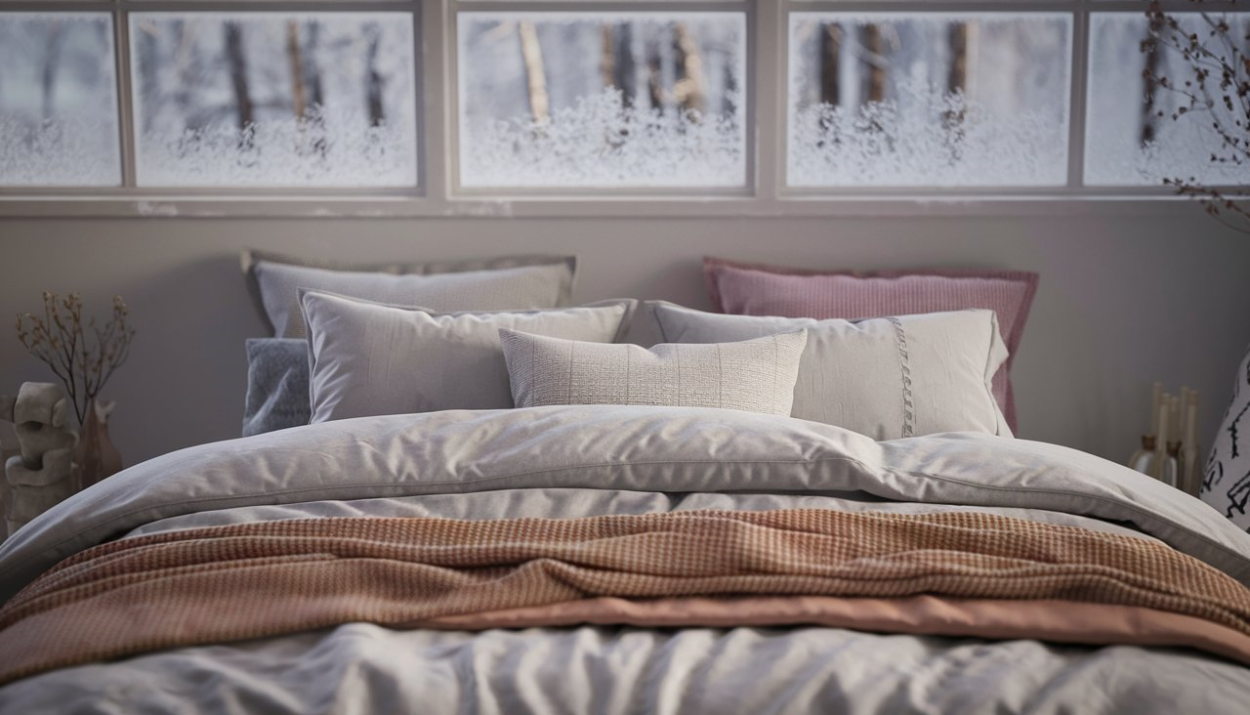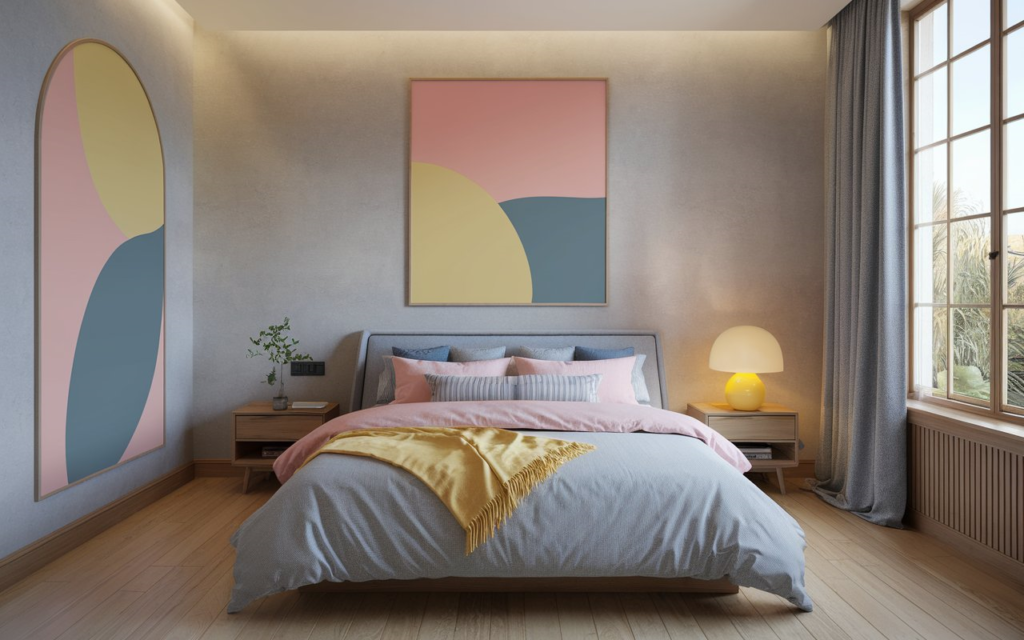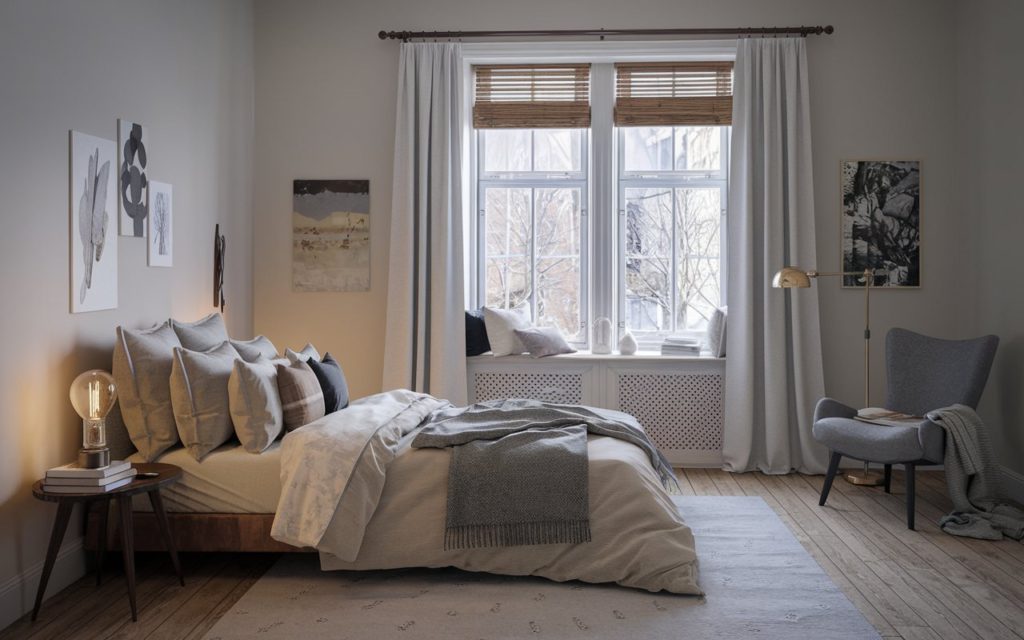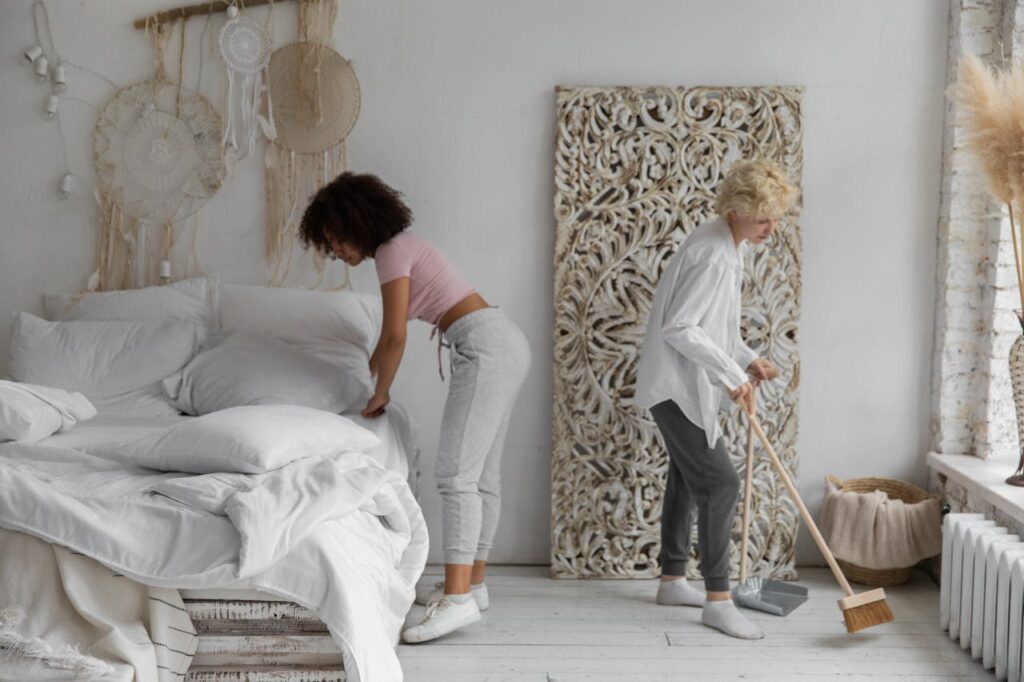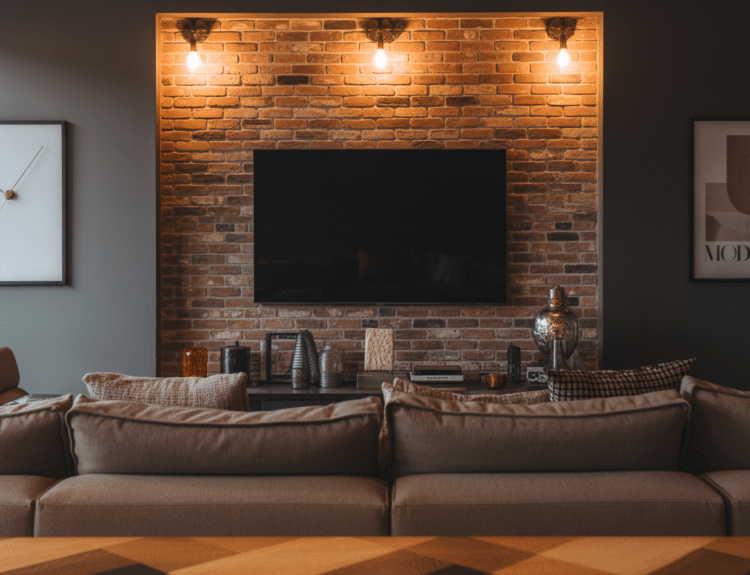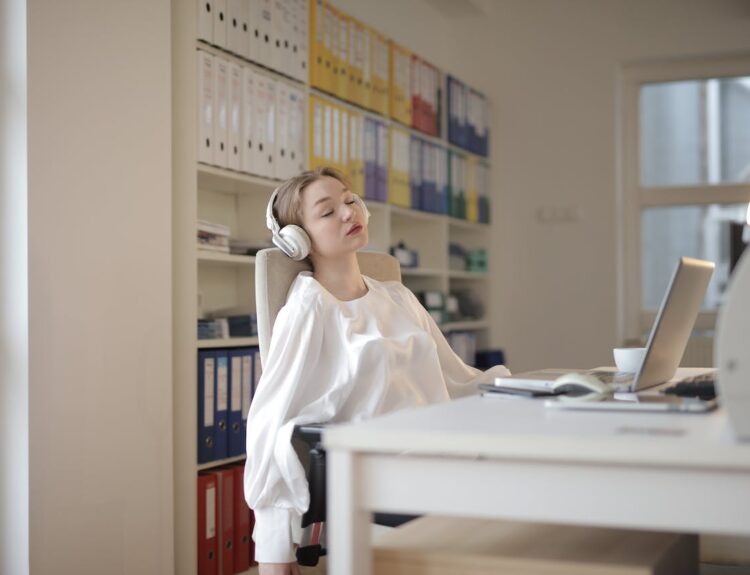How to make your room better for sleep? Creating a restful environment is one of the most powerful ways to enhance the quality of your sleep and improve your overall health. By focusing on calming aesthetics, thoughtful organization, and maximum comfort, small changes to your bedroom can help foster a peaceful atmosphere that encourages deep relaxation.
Discover how to make your room better for sleep! Learn how small changes can enhance your sleep quality with our simple yet effective tips.
In this article:
- How to Make Your Room Better for Sleep with a Calming Bedroom Setup
- Natural Tips to Make Your Room Better for Sleep
- Bedroom Essentials: How to Make Your Room Better for Sleep
- Simple Ways to Make Your Room Better for Sleep
- How to Keep Your Room Clean to Sleep Better
HOW TO MAKE YOUR ROOM BETTER FOR SLEEP WITH A CALMING BEDROOM SETUP
Creating a calming bedroom setup is essential for quality sleep. A peaceful environment signals to your brain and body that it’s time to unwind, reducing stress and promoting relaxation. Start by minimizing clutter and distractions; keep only essential items in your bedroom to establish a dedicated sleep space. This approach reduces mental clutter and fosters a sense of order, making it easier to relax.
Lighting plays a key role in setting a calming mood. Use soft, warm lighting in lamps or dimmable overhead fixtures, as bright or cool-toned lights can overstimulate your mind and delay sleep. A bedside lamp with a warm bulb creates a gentle, inviting glow. Blackout curtains can block disruptive outdoor light, which is especially useful if you live in a busy or well-lit area.
Comfortable bedding is another crucial component. Invest in a high-quality mattress that supports your spine, along with soft sheets, cozy blankets, and pillows that keep your neck and head aligned. Natural, breathable materials like cotton or linen add comfort and help reduce overheating, promoting relaxation.
Thoughtful furniture placement can also enhance relaxation. Arrange furniture to create a sense of openness, and avoid placing your bed directly under a window, which can expose you to streetlights or outdoor noise. These adjustments transform your room into a calm sanctuary, inviting restful sleep and supporting your overall well-being.
NATURAL TIPS TO MAKE YOUR ROOM BETTER FOR SLEEP
Creating a natural sleep environment is essential for improving sleep quality and helping your body settle into its natural rhythm. By making a few easy adjustments, you can transform your bedroom into a space that naturally supports restful sleep.
Maximize Natural Light: Letting in natural light during the day can help regulate your circadian rhythm, your body’s internal clock that influences your sleep-wake cycle. Exposure to sunlight in the morning or early afternoon can boost alertness and improve nighttime sleep quality. In the evening, eliminate or reduce artificial light sources, such as bright overhead lights and screens, as these can interfere with melatonin production, the hormone that signals sleep.
Optimal Temperature: Maintaining a cool room temperature—between 60 and 67 degrees Fahrenheit (15-20°C)—is often ideal for promoting better sleep. A cooler environment helps your body relax and fall asleep more quickly. Opt for breathable bedding materials like cotton, linen, or bamboo that help keep your body temperature stable and prevent overheating during the night.
Aromatherapy: Certain essential oils, such as lavender, chamomile, and cedarwood, are known for their calming effects and can support relaxation before bed. Using an essential oil diffuser in your room allows the scent to disperse gently, creating a soothing atmosphere that promotes a restful mindset. Alternatively, placing a few drops of oil on your pillowcase can provide a relaxing aroma as you settle into bed.
These simple, natural adjustments help support your body’s relaxation processes, making it easier to fall asleep and stay asleep throughout the night.
BEDROOM ESSENTIALS: HOW TO MAKE YOUR ROOM BETTER FOR SLEEP
The essentials in your bedroom are crucial for creating an environment that promotes restful and rejuvenating sleep. A few thoughtful choices can significantly improve your sleep quality.
Invest in a Good Mattress: The mattress you sleep on plays a major role in your rest. If it’s too firm or too soft, it can cause discomfort and disrupt your sleep cycle. Choose a mattress that offers the right support for your body and allows for proper spinal alignment, helping to reduce aches and pains. Look for a mattress that strikes a balance between support and comfort, such as memory foam or hybrid options.
Pillows and Bedding: Your pillow is essential for keeping your neck and head properly supported, ensuring your spine stays aligned. The right pillow depends on your preferred sleeping position—whether you’re a side, back, or stomach sleeper. In addition, soft, breathable sheets and cozy blankets contribute to an overall comfortable sleep experience by helping regulate your body temperature.
Noise Control: If you live in a noisy environment, controlling sound is key to achieving uninterrupted sleep. Consider using earplugs or investing in a white noise machine to mask disruptive sounds, creating a calming atmosphere. This can help you sleep more soundly, even with background noise like traffic or conversations.
Start with one or two changes today, and you’ll soon notice the positive impact on your sleep quality.
SIMPLE WAYS TO MAKE YOUR ROOM BETTER FOR SLEEP
Here are some easy, no-fuss tips to help you create a more restful environment:
Declutter Your Space: A cluttered room can lead to mental stress, making it harder to unwind at night. Keeping your bedroom tidy and organized creates a calm, peaceful atmosphere that promotes relaxation. Try removing unnecessary items and only keeping essentials, such as your bed, bedside table, and a comfortable chair. A minimalist approach can make your room feel more spacious and inviting, allowing you to focus on rest rather than distractions.
Use Blackout Curtains: Exposure to light at night can disrupt your body’s natural sleep cycle, making it harder to fall asleep or stay asleep. Blackout curtains or shades are a great investment to block out external light, whether from street lamps, headlights, or early morning sunshine. These curtains create a dark, serene environment that signals to your body that it’s time to rest, helping you fall asleep faster and wake up feeling refreshed.
Electronics-Free Zone: The blue light emitted by phones, tablets, and televisions interferes with melatonin production, the hormone that regulates sleep. Establishing a rule of no electronics at least one hour before bed can help your body wind down naturally. Consider charging your devices outside the bedroom to avoid temptation and create a peaceful, tech-free zone conducive to restful sleep.
These small changes can transform your bedroom into a tranquil space, helping you relax and enjoy better, more restorative sleep.
HOW TO KEEP YOUR ROOM CLEAN TO SLEEP BETTER
A clean, tidy room plays a crucial role in enhancing your sleep quality. Not only does it provide a more inviting and restful environment, but the act of cleaning can also be mentally soothing, helping you unwind before bed. Here are a few tips for maintaining a clean, sleep-friendly room:
Clean Sheets and Bedding: Fresh, clean sheets can make a big difference in your sleep experience. Regularly washing your bedding removes dust, dirt, and allergens, contributing to a healthier sleeping environment. Clean sheets also make your bed feel more comfortable and inviting, helping you relax and drift off to sleep with ease.
Daily Tidy-Up Routine: A quick daily cleaning routine can prevent clutter from building up in your room. Spend just a few minutes each day putting away clothes, straightening your bed, and wiping down surfaces. This simple habit helps maintain a tidy space, ensuring you won’t feel overwhelmed by mess when it’s time to sleep.
Air Quality: Good air quality is essential for restful sleep. Fresh, clean air helps reduce allergens and promotes a comfortable temperature. Open your windows regularly to let in fresh air, or consider using an air purifier to remove dust, pollen, and other particles. A well-ventilated room ensures you breathe easily and sleep soundly.
_____
How to make your room better for sleep? It doesn’t have to involve major renovations or expensive purchases. By focusing on small but effective changes like decluttering, optimizing lighting, and ensuring comfortable bedding, you can create a peaceful sleep sanctuary that supports your natural sleep cycle. Try some of these adjustments to enhance your sleep quality and wake up feeling refreshed every morning.
This post may contain affiliate links. You can read the affiliate disclosure here.

